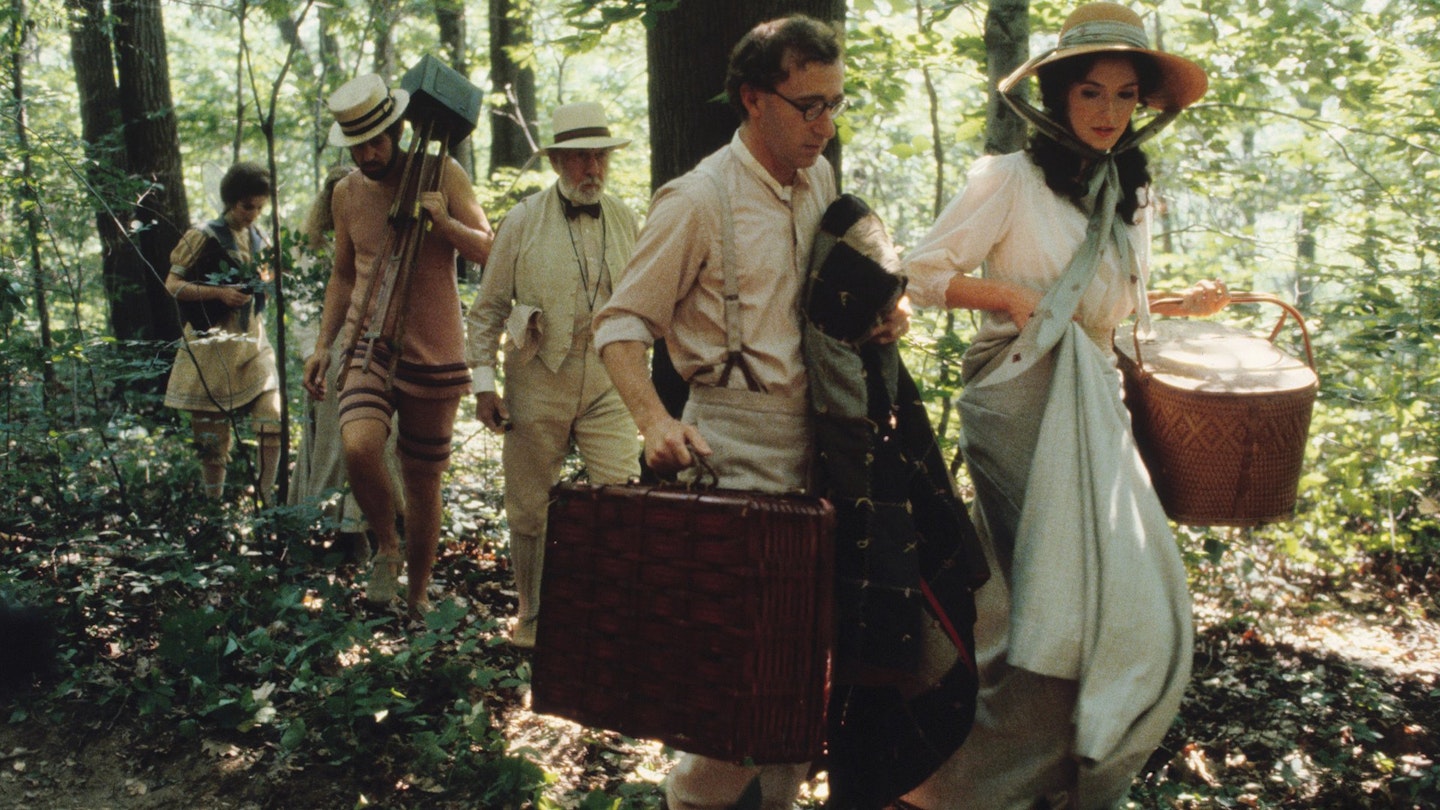The imminence of a Directors' Guild strike in the summer of 1981 prompted Jack Rollins and Charles H. Joffe to rush this period confection into production. Buoyed by the experience of Zelig (which was now in its extensive post-production) and the freshness of his relationship with Mia Farrow, Woody Allen wrote the screenplay in just three weeks.
Although Allen always denied the similarity, it's hard to resist comparisons with both Ingmar Bergman's Smiles of a Summer Night and A Little Night Music , the Stephen Sondheim musical Bergman inspired. However, the luminosity of Gordon Willis's photography also recalls Jean Renoir's rural delight, Une Partie de Compagne.
Allen insisted Smiles was his least favourite Bergman film and, unfortunately, this is one of his own least persuasive pictures. Even in the mouths of turn-of-the-century intellectuals, the very modern conversation rings hollow too often and, despite Mendelssohn on the soundtrack, the atmosphere stubbornly refuses to become whimsical.
Part of the problem lies in Allen's own inability to tailor his standard delivery style to a flightier than usual character. But, more damaging is the suspicion that he doesn't really believe in his material. It may have been written in the throes of passion, but, for all its midsummer madness, the script regularly casts doubt on the wisdom of falling in love and succumbing to the foolish fancies that it invariably compels normally rational people to pursue. Moreover, Allen betrays a nagging doubt that his own personal and professional idyll will last and this fatalism introduces a faintly cynical note that curdles the action's exuberance and romantic idealism.
José Ferrer (who was mischievously cast for his inveterate grandiloquence) and Tony Roberts are much more convincing, as the pompous urban bourgeois seduced by their return to nature, while Mia Farrow's fragile beauty perfectly captures the ethereality of the film's fleeting wit. But Mary Steenburgen and Julie Haggerty are perhaps most amusing, as the mirror opposites afflicted by guilt-racked frigidity and gleeful promiscuity.
